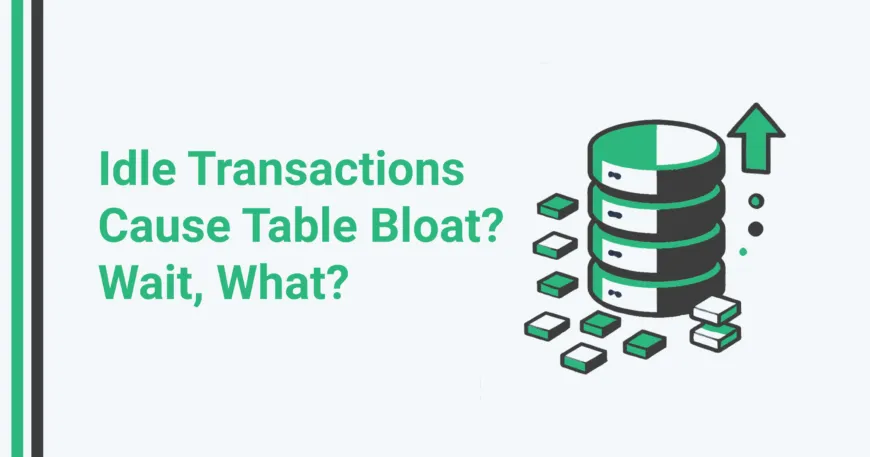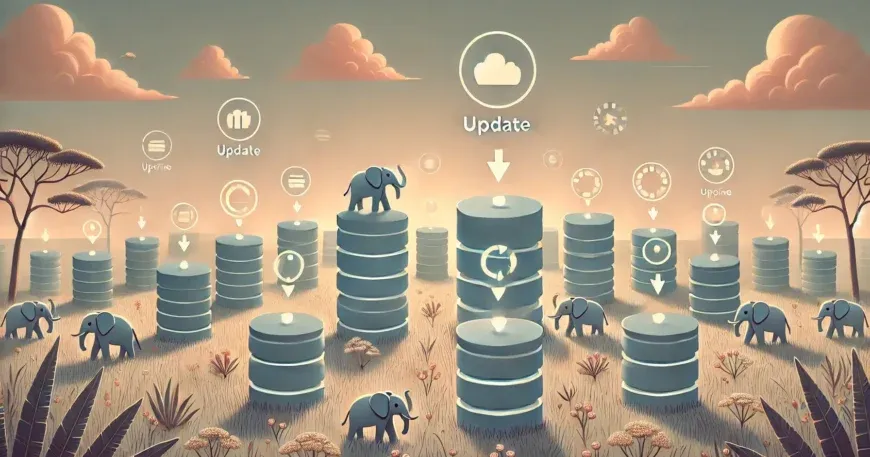Idle Transactions Cause Table Bloat? Wait, What?
Yup, you read it right. Idle transactions can cause massive table bloat that the vacuum process may not be able to address. Bloat causes degradation in performance and can keep encroaching disk space with dead tuples.
This blog delves into how idle transactions cause table bloat, why this is problematic, and practical strategies to avoid it.What Is Table Bloat?
Table bloat in PostgreSQL occurs when unused or outdated data, known as dead tuples, accumulates in tables and indexes. PostgreSQL uses a Multi-Version Concurrency Control (MVCC) mechanism to maintain data consistency. Each update or delete creates a new version of a row, leaving the old version behind until it is cleaned up by the autovacuum process or manual vacuuming.
Bloat becomes problematic when these dead tuples pile up and are not removed, increasing the size of tables and indexes. The larger the table, the slower the queries, leading to degraded database performance and higher storage costs.How Idle Transactions Cause Table Bloat
Idle transactions in PostgreSQL are sessions that are connected to the database but not actively issuing queries. There are two primary states of idle transactions:Idle: The connection is open, but no transaction is running.
Idle in Transaction: A transaction has been opened (e.g., via BEGIN) but has neither been committed nor rolled back.












